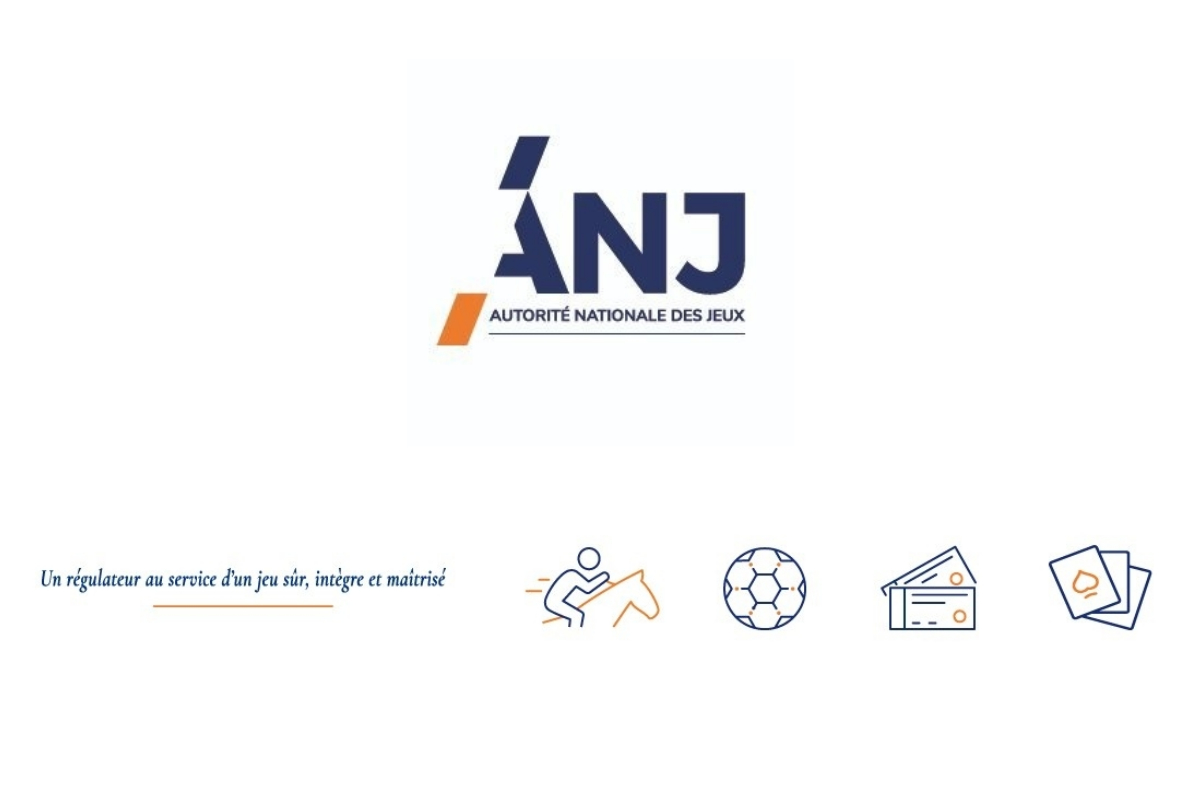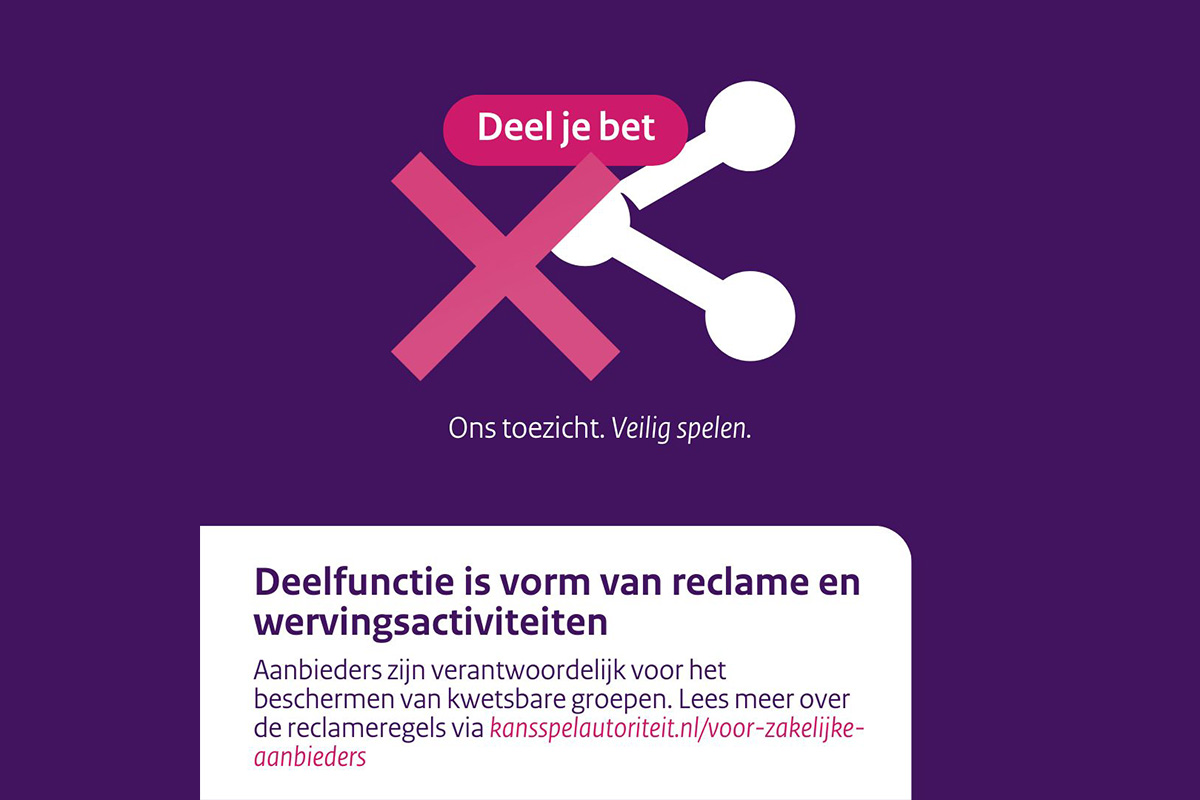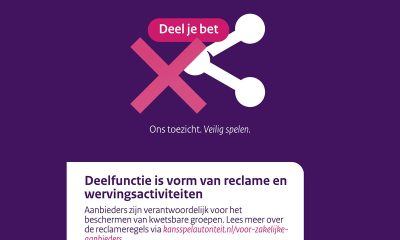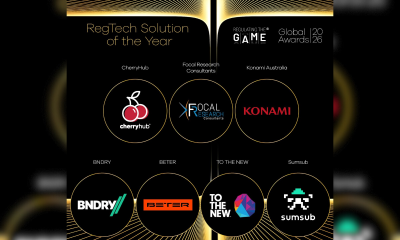Compliance Updates
The ANJ publishes its 2024/2026 strategic plan aimed at drastically reducing the proportion of excessive gamblers

Three years after its establishment and the introduction of the new gambling regulation, the ANJ is presenting its strategic plan for 2024-2026. The reduction of excessive gambling and the social damages it causes, as well as the protection of minors, are at the heart of its actions. To achieve this ambitious objective, which reflects a problem that is no longer individual but social, the ANJ is calling on all economic and institutional players concerned to work alongside it.
The first cycle of regulation under the aegis of the French Gambling Authority (ANJ) ended in 2023 with the observation that the gambling market was booming, with revenues of more than €13 billion, representing an increase of more than 50% since the opening of the market in 2011. Over the years, gambling has become a mainstream consumer product for people of all ages and from all walks of life: more than half of all French people now gamble, spending more than €55 billion each year. Gambling is at the heart of our societies, and this phenomenon can be observed in every European country.
However, gambling is not a product like any other, and it is the risks inherent in this activity that have justified the government’s implementation of a restrictive regulatory policy, which translates into a legal objective of limiting and supervising the supply and consumption of gambling. In 2019, the public authorities wanted to strengthen player protection and the ANJ was created with this objective in mind.
Although gambling operators have made significant progress in this area over the past three years, problem gambling still plays too large a role in the gambling market. In 2019, the Gambling Observatory estimated the number of at-risk gamblers at 1.4 million, including almost 400,000 at pathological level. In total, problem gambling accounts for more than 38% of the sector’s turnover and excessive gambling alone for 21%. These figures, which are due to be updated shortly, illustrate the reality of a social problem, particularly for young people, with collateral damage in the gambler’s in the gambler’s immediate environment: excessive debt, family problems, difficulties at school, etc.
In this context, the ANJ has been working with all stakeholders to define the new regulatory guidelines for the period 2024-2026. These place the protection of minors and the reduction of excessive gambling and the social damage it causes at the centre of the regulator’s activities, like a common thread that inspires all its actions.
The ANJ’s new roadmap is based on three fundamental pillars:
- The first of these pillars, which reflects the public health implications of regulation, aims to drastically reduce the proportion and number of excessive gamblers in the gambling market. This key objective for the ANJ will require major efforts on the part of operators. It cannot be achieved without a coherent and balanced regulatory policy aimed at consolidating the French gambling market model.
- At the same time, this requires the ANJ to continue its efforts to preserve the transparency and integrity of the sector, with the fight against illegal gambling at the forefront (second pillar), and to strengthen the economic dimension of regulation in order to gain a better understanding of market balances and provide solutions to the changes it is facing today (third pillar).
Finally, the strategic plan is based on three foundations that are the conditions for the success of its ambition: to make scientific knowledge of the market and gambling practices the compass of regulation; to embody, at national and European level, regulation based on dialogue and cooperation to drive the repositioning of the market; and finally, to position the ANJ as a laboratory for bold, effective and exemplary public action.
This is a critical time for the French gambling market: it can both destabilise and strengthen the French model. This strategic plan should help to strengthen the French regulatory model as an acceptable compromise between openness and protection.
Isabelle FALQUE-PIERROTIN, President of the ANJ, said: “After three years in office, we now believe that the regulation of gambling must take a turn that involves the market gradually moving towards a less intensive model. This voluntary target to reduce the number of excessive gamblers and to strengthen the protection of minors will be monitored over a period of 3 years and adjusted in line with monitoring indicators and prevalence studies. It can only be achieved if all the players join forces alongside the regulator to move the goalposts: gambling operators, public authorities, institutions, associations, etc. “
Compliance Updates
Dutch Regulator Urges Online Gambling Providers to Stop Using “Share Your Bet” Feature

The Dutch Gambling Regulator (KSA) has urged the online gambling providers to discontinue the “Share your bet” feature. This feature allows players to share their placed bets via social media or messaging apps such as WhatsApp, Facebook and email. The KSA investigated the functionality of this feature after receiving several signals and questions from the market.
“Share your bet” function
The “Share your bet” feature allows players to easily share their bets with others. It works like this: a player places a bet and sends it via a link to, for example, friends or family. The recipient can then immediately see the bet and, if they have an account, participate as well. This makes gambling easily shared, often via social networks.
Protection of vulnerable groups
The KSA points out that the “Share your bet” feature is a form of advertising and recruitment. It’s a way for providers to promote gambling, but indirectly through players themselves. According to the Decree on Recruitment, Advertising and Addiction Prevention in Gambling, providers must ensure that advertising does not reach vulnerable groups, such as minors, young adults and people with gambling problems.
Because players with the “Share your bet” feature decide who to send their bet to, providers have no control over who receives the shared messages. This means that gambling providers cannot guarantee that vulnerable groups will not unintentionally encounter gambling advertising. Therefore, offering features like “Share your bet” is not permitted.
In addition, the ease of sharing bets helps normalize gambling. This lowers the barrier to entry, especially among younger demographics.
Discontinue “Share your bet” functionality
The KSA is therefore calling on all online gambling providers using the “Share your bet” feature to immediately stop doing so. The KSA will continue to monitor any new developments in this area and will take enforcement action where necessary to ensure the protection of vulnerable groups.
The post Dutch Regulator Urges Online Gambling Providers to Stop Using “Share Your Bet” Feature appeared first on Eastern European Gaming | Global iGaming & Tech Intelligence Hub.
Arshak Muradyan
Digitain Secures UKGC Certification for Sportsbook and Platform

Digitain has secured certification from the UK Gambling Commission (UKGC) for its Sportsbook and platform, alongside obtaining a UK betting licence for real and virtual events. This milestone confirms that Digitain’s technology meets the rigorous regulatory and technical standards required to operate in one of the world’s most demanding iGaming markets.
The UK is widely recognised as one of the most highly regulated and competitive jurisdictions globally. Securing UKGC approval is a clear marker of Digitain’s commitment to compliance, player protection and long-term operational reliability, while continuing to deliver performance-driven technology for ambitious operators.
Vardges Vardanyan, Founder of Digitain Group, said: “The UK is one of the most demanding regulatory environments in the global gaming industry. Meeting these standards is a strong endorsement of our technology, compliance capabilities, and operational maturity. This achievement enables us to support UK-licensed operators with confidence, delivering reliable, scalable, and future-ready solutions designed to perform in highly regulated markets.”
This certification further strengthens Digitain’s position as a trusted technology partner for regulated markets. The platform is designed to support sustainable growth, offering operators the flexibility to localise, optimise and scale within strict compliance frameworks. At the same time, Digitain’s UK-certified Sportsbook is built with control and transparency at its core, enabling operators to meet regulatory requirements without compromising on product depth, speed or engagement.
Arshak Muradyan, Group Chief Compliance Officer at Digitain, added: “Securing a UK betting licence alongside full Sportsbook and Platform certification is a clear validation of Digitain’s compliance-first approach. The UK market demands continuous oversight, robust controls, and absolute transparency, and this approval confirms that our systems, processes, and governance structures are built to meet those expectations.”
The post Digitain Secures UKGC Certification for Sportsbook and Platform appeared first on Eastern European Gaming | Global iGaming & Tech Intelligence Hub.
Brasil on Track
ODDSGATE LAUNCHES “BRASIL ON TRACK”, A STRATEGIC PLATFORM FOR NAVIGATING BRAZIL’S REGULATED IGAMING MARKET

As Brazil’s regulated iGaming market completes its first year under Law 14.790/2023, Oddsgate today announced the launch of Brasil on Track, a strategic platform designed to help operators monitor legislation, understand compliance requirements, and make informed decisions in Latin America’s largest economy.
Brasil on Track provides live tracking of regulatory milestones, market indicators, and operational requirements,
connecting legal updates to their business impact and linking directly to official sources.
Brazil’s regulatory landscape has evolved rapidly over the past year. Law 14.790/2023 introduced clearer frameworks for licensing, taxation, and consumer protection, which accelerated international interest and positioned Brazil among the world’s most closely watched regulated iGaming markets.
According to Brazil’s Ministry of Finance, the sector generated an estimated R$36 billion in gross gaming revenue (January-September 2025) and R$3.3 billion in federal tax revenue over the same period, highlighting the market’s scale and momentum.
Source: Brazil’s Ministry of Finance, 2025.
“The regulation brought by Law 14.790/2023 was a major milestone for Brazil’s iGaming sector,” said Valter Delfraro Junior, Oddsgate’s Director of Regulatory Affairs. “It ended years of uncertainty and provided legal security and operational clarity. This new scenario places Brazil’s gaming industry on par with mature markets, increasing our international competitiveness and attractiveness to global investors and partners.”
During the first year of regulation, operators faced extensive requirements, including federal authorization processes, responsible gambling mechanisms, advertising restrictions, and new tax structures. Oddsgate expects the market to continue expanding throughout 2026, with early adopters well-positioned to benefit from greater credibility and market growth.
“We transform regulation into a practical, continuous guide for operating in Brazil with less risk and more clarity,” said Wagner Fernandes, Chief Marketing Officer at Oddsgate. “Brasil on Track helps teams entering, expanding, or optimizing operations decide with context, not guesswork.”
What “Brasil on Track” includes
– Live tracking of active regulation and pending bills;
– An operational roadmap mapping legal changes to required compliance actions;
– Market intelligence, including player demographics and key market indicators;
– Visibility into tax structures, licensing steps, and market-entry requirements;
– Focus areas include KYC, AML, self-exclusion tools, responsible gambling, and consumer protection requirements.
The post ODDSGATE LAUNCHES “BRASIL ON TRACK”, A STRATEGIC PLATFORM FOR NAVIGATING BRAZIL’S REGULATED IGAMING MARKET appeared first on Americas iGaming & Sports Betting News.
-

 Africa6 days ago
Africa6 days agoDive Into a Different Kind of Love This February with Springbok Casino’s ‘Whalentines Month’ and Claim 25 Free Spins
-

 Book of Sobek6 days ago
Book of Sobek6 days agoHölle Games Releases Book of Sobek
-

 Danske Spil6 days ago
Danske Spil6 days agoS Gaming lands in Denmark with Danske Spil
-

 ACMA6 days ago
ACMA6 days agoACMA: Six Wagering Providers Breach Gambling Self-Exclusion Rules
-

 Australia6 days ago
Australia6 days agoFinalists Announced for Inaugural Regulating the Game Global Awards Following Strong Global Engagement
-

 Latest News6 days ago
Latest News6 days agoThunderkick Unveils Pan’s Arcadia, a Utopian Wilderness
-

 Latest News5 days ago
Latest News5 days agoBMM TESTLABS GRANTED NEW LICENSE IN BRAZILIAN STATE OF MINAS GERAIS, EXPANDING ITS PRODUCT TESTING AND CERTIFICATION FOOTPRINT IN BRAZIL
-

 Colombia5 days ago
Colombia5 days agoZITRO INSTALLS OVER 70 MACHINES ACROSS GRUPO ALADDIN CASINOS IN COLOMBIA































